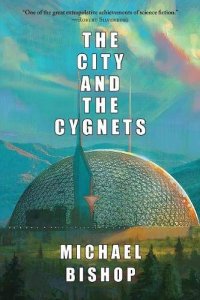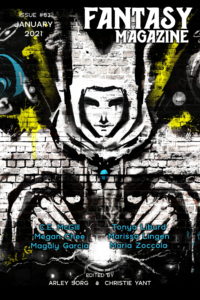Paul Di Filippo Reviews By the Pricking of Her Thumb by Adam Roberts
By the Pricking of Her Thumb, Adam Roberts (Gollancz 978-1473221499, $24.99, 272pp, hardcover) August 2018
 I seem to recall a character from one of John Barth’s early novels who wanted to live a life of utter unpredictability and inconsistency, as a kind of embodiment of the chaos principle. But then with a shock the man realized that total inconsistency was a kind of predictability. And so he picked one thing in his life that he would do in a totally predictable fashion. Here my memory breaks down, because I forget what that one thing was. Maybe something as simple as always taking cream in his coffee.
I seem to recall a character from one of John Barth’s early novels who wanted to live a life of utter unpredictability and inconsistency, as a kind of embodiment of the chaos principle. But then with a shock the man realized that total inconsistency was a kind of predictability. And so he picked one thing in his life that he would do in a totally predictable fashion. Here my memory breaks down, because I forget what that one thing was. Maybe something as simple as always taking cream in his coffee.
In any case, Adam Roberts has always hewed in a certain sense to this Barthian invention. He has never sequelized himself, doing something utterly unpredictable with every new book. That is, utterly unpredictable except insofar as one knew the new novel would always be wonderful and startling and unlike most other SF.
But with his latest Roberts has thrown his readers a curve. The new book a direct follow-up to his wowser, The Real-Town Murders. Given their back-to-back publication, we could pretend that Roberts merely split one big book into two parts. But since the first book dealt with a certain crime and brought the case to its satisfactory conclusion, and the new book does the same, I guess we can’t pretend it’s not a truly independent installment in a series. So affirming that Roberts has indeed committed a sequel, we must ask if it hews to the high standards of the first.
The premise, you might recall, is that the vast majority of the citizens of our near-future world are immersed 24/7/365 in virtual reality (the Shine), leaving meatspace as a mostly empty, shabby realm of losers, robots, and zonked-out cybernauts getting their bodies exercised in mecha-suits. (I neglected to mention in my review of the first book a certain thematic alliance here with Ready Player One.) Our heroine, Englishwoman Alma the private eye, is one of the rare exiles and naysayers of the cyber-realm. She has to be corporally with-it for a very good reason: her lover and partner Marguerite is in thrall to a hacked bioweapon plague which has deranged her physiology to the point where medical intervention is required every four hours. And the rescue procedures have to be personally applied by Alma, or death will result.
Given this tight, suspense-raising leash on her doings—Alma can only dart in and out of her apartment on short jaunts—Roberts was still able incredibly to manufacture a wide-ranging, action-stuffed plot involving conspiracies and battles among the upper echelons of government. Alma solved that case and was left with the new goodwill of mentor and patron Pu Sto. Unfortunately, this status did not translate into wealth.
The new book opens eighteen months later. Not much has changed, except that Alma and Marguerite have maxed out all their credit and are in dire need of money. A symbolically resonant state of affairs, given that Alma will receive her new commission from Jupita, one of the four richest people in Europe: aka, the Fab Four. Jupita believes that one of the other Fab Fours—the Golden Meteor, Stirk, or Cernowicz—has been murdered and their identity stolen. Alma is tasked with discovering who and why.
Meanwhile, the municipal police have found an innocuous woman, Alexa Lund, dead by a seemingly impossible cause: a tiny untainted needle driven through her thumb. (Hence the novel’s title, and props to Roberts for adapting the underutilized second half of the famous Shakespeare quote that gave us “Something wicked this way comes.”) The cops likewise enlist Alma’s help. As we might suspect, the two cases prove intertwined.
Alma’s progress is slow until she is contacted by a manic fellow who calls himself “Stan,” after his favorite antique film director, Kubrick. (Roberts, I will assume, is also playing off the current slang usage of “stan” as a deranged fan.) Stan teases Alma with numerous clues to the solution of both crimes, revolving around 2001: A Space Odyssey.
Alma gets an unprecedented face-to-face interview with the Golden Meteor, but it ends badly at the hands of the Kry [sic] brothers, two goofball killers modeled on the famous Krays. Facing brutal assaults, Marguerite’s attacks, and Stan’s pokings and proddings, Alma stumbles towards a solution that will mean either her death, a Greg-Eganish revolution in the Shine, or perhaps both.
As a sequel, this novel necessarily features a little less of the impact than the first, in one department. Roberts does not have to—nor should he—do as much worldbuilding here as previously, working on the assumption that his readers are up to speed. But this relative thinness of the superstructure—there are no revelations not present in the first book about the future world–makes us focus more attention on the plot, the new mystery. It has to carry the full burden of the book—and mostly can. It’s a good puzzle, with lots of consequences and plenty of surprises along the way. Additionally, Roberts weaves some splendid philosophical arguments about the nature of money, the perception of time, social networking, the nature of death and grief. But the individual greedy machinations of individuals, however rich, still prove less weighty, in my eyes, than the prior book’s global political gamescape. Also, this outing does not feature the big action set pieces of the first book, but is quieter and more low-key. Not a bad thing, assuredly, just different from the first adventure.
Roberts deploys Carrollian wordplay in his dialogue which is a kind of update or analogue to Raymond Chandler’s famous hypertrophied metaphors and similes and descriptions from Marlowe. The murderous banter between the Krys is especially tasty. Alma in particular uses language as another weapon in her PI practice, and this comes to the fore in a climactic scene where she is at risk of being literally “monologued to death.” Roberts also juggles all the symbology of the book (Jupita the woman equals Jupiter the planet in 2001, etc., etc.) with skill and verve.
Ultimately, Roberts justifies his return to Alma and her world, by picking at the underpinnings of the Shine, by presenting us with a clever caper, and by pushing Alma to a new stage in her life.
I won’t say Roberts is done with Alma and her milieu, for although the novel ends with major changes in her existence and the knotting of all threads, there’s enough open-endedness for a third book. Far be it from me to try to predict what will come next from a writer who has established such a pattern of unpredictable predictability!
 While you are here, please take a moment to support Locus with a one-time or recurring donation. We rely on reader donations to keep the magazine and site going, and would like to keep the site paywall free, but WE NEED YOUR FINANCIAL SUPPORT to continue quality coverage of the science fiction and fantasy field.
While you are here, please take a moment to support Locus with a one-time or recurring donation. We rely on reader donations to keep the magazine and site going, and would like to keep the site paywall free, but WE NEED YOUR FINANCIAL SUPPORT to continue quality coverage of the science fiction and fantasy field.








